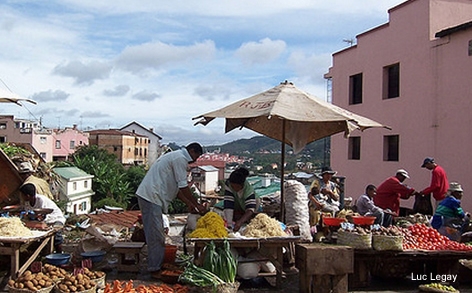
Madagascar is steadily taking charge of its poverty alienation plan with the help of the Centre de Recherches, d’Etudes et d’Appui à l’Analyse Economique à Madagascar, better known as CREAM, an organization supported by the African Capacity Building Foundation (ACBF).
CREAM is taking a lead in building the capacity of government institutions, the private sector and the civil society. It recognizes that a knowledgeable private sector can act as a vehicle for growth and social development and push for formulation of suitable economic policies. Additionally, they believe in a well-informed civil society, able to participate in policy dialogue and play an advocacy role for equitable sharing of gains from the country’s economic growth.
Established in 2003, CREAM aims at strengthening the country’s capacity in the formulation, analysis and management of economic policies.
During the first phase of ACBF’s support, CREAM successfully established itself as a credible think-tank. Notably, it contributed to availing the government, especialliy the ministries in charge of economic management and development, of well-researched policy advice on key economic issues. These included issues related to the country’s exchange rate policy and economic growth, and opportunities offered by regional integration, particularly when it joined the Southern African Development Community (SADC) in 2005.
On the back of a successful completion of the first phase, ACBF approved a second phase to which both the government of Madagascar and the think tank contributed at the level of 39% of the financial resources requirements. The second phase is being implemented over a period of four years until January 2015.
CREAM which also provided invaluable input concerning the incidence of cultural factors on the investment climate in Madagascar seeks to continue its support to the government in the effective implementation of its ambitious growth and poverty reduction strategy, otherwise known as the Madagascar Action Plan.
In addition, it will ensure the deployment of human resources, the continuation of the country’s capacity building plan, and the conduct of research studies. Phase two mandate also incorporates the dissemination of knowledge through the organization of conferences, seminars, workshops and an interactive website that will facilitate networking and partnerships with other institutions and actors. It will see to it that research results are also properly disseminated.
To date, the project has developed 22 monographs which are to be published with support from the World Bank. Other studies done by CREAM are on informal employment and on the Millennium Development Goals. The Centre plans to publish these results in economic journals and in its own newsletter. All the publications will also be posted on the Centre’s website. Efforts have been put into improving the library while the online business portals have been strengthened.
On the human capacity building side, the Centre held 12 short training sessions for staff of public institutions, the private sector, and civil society. 400 participants have been trained in economic analysis, management and policy formulation. Government officials, economists, and senior staff of CREAM have also benefited from the trainings, seminars and conferences supported by the programme. In addition, the think tank has organized consultation workshops with government, civil society and the private sector on issues related to the country’s vision and ambition.
CREAM is also funded by the United Nations Development Programme (UNDP).





